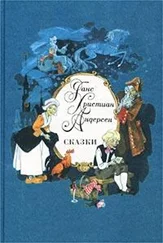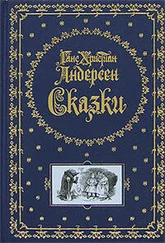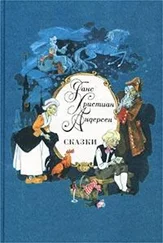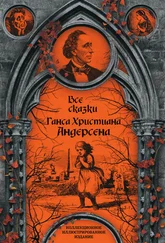Ганс Андерсен - O. T., A Danish Romance
Здесь есть возможность читать онлайн «Ганс Андерсен - O. T., A Danish Romance» — ознакомительный отрывок электронной книги совершенно бесплатно, а после прочтения отрывка купить полную версию. В некоторых случаях можно слушать аудио, скачать через торрент в формате fb2 и присутствует краткое содержание. Жанр: foreign_prose, literature_19, Европейская старинная литература, foreign_antique, на английском языке. Описание произведения, (предисловие) а так же отзывы посетителей доступны на портале библиотеки ЛибКат.
- Название:O. T., A Danish Romance
- Автор:
- Жанр:
- Год:неизвестен
- ISBN:нет данных
- Рейтинг книги:4 / 5. Голосов: 1
-
Избранное:Добавить в избранное
- Отзывы:
-
Ваша оценка:
- 80
- 1
- 2
- 3
- 4
- 5
O. T., A Danish Romance: краткое содержание, описание и аннотация
Предлагаем к чтению аннотацию, описание, краткое содержание или предисловие (зависит от того, что написал сам автор книги «O. T., A Danish Romance»). Если вы не нашли необходимую информацию о книге — напишите в комментариях, мы постараемся отыскать её.
O. T., A Danish Romance — читать онлайн ознакомительный отрывок
Ниже представлен текст книги, разбитый по страницам. Система сохранения места последней прочитанной страницы, позволяет с удобством читать онлайн бесплатно книгу «O. T., A Danish Romance», без необходимости каждый раз заново искать на чём Вы остановились. Поставьте закладку, и сможете в любой момент перейти на страницу, на которой закончили чтение.
Интервал:
Закладка:
“Otto Thostrup!” answered the host. “Yes, truly he’s a clever fellow, but he seems to me so haughty. There is something about him that does not please me at all. We are still no dunces, although he did receive nine prae caeteris!”
“Yet it was very provoking,” cried another, “that he received the only Non in mathematics. Otherwise he would have been called in. Now he will only have to vex himself about his many brilliant characters.”
“Yes, and he is well versed in mathematics!” added Wilhelm “There was something incorrect in the writing; the inspector was to blame for that, but how I know not. Thostrup is terribly vehement, and can set all respect at defiance; he became angry, and went out. There was only a piece of unwritten paper presented from him, and this brought him a cipher, which the verbal examination could not bring higher than non. Thostrup is certainly a glorious fellow. We have made a tour together in the steamboat from Helsingöer to Copenhagen, and in the written examination we sat beside each other until the day when we had mathematics, and then I sat below him. I like him very much, his pride excepted; and of that we must break him.”
“Herr Baron,” said his neighbor, “I am of your opinion. Shall not we drink the Thou-brotherhood?”
“To-night we will all of us drink the Thou!” said the host; “it is nothing if comrades and good friends call each other you .”
“Evoe Bacchus!” they joyously shouted. The glasses were filled, one arm was thrown round that of the neighbor, and the glasses were emptied, whilst several commenced singing “dulce cum sodalibus!”
“Tell me what thou art called?” demanded one of the younger guests of his new Thou-brother.
“What am I called?” replied he. “With the exception of one letter, the same as the Baron.”
“The Baron!” cried a third; “yes, where is he?”
“There he stands talking at the door; take your glasses! now have all of us drank the Thou-brotherhood?”
The glasses were again raised; the young Baron laughed, clinked his glass, and shouted in the circle, “Thou, Thou!” But in his whole bearing there lay something constrained, which, however, none of the young men remarked, far less allowed themselves to imagine that his sudden retreat, during the first drinking, perhaps occurred from the sole object of avoiding it. But soon was he again one of the most extravagant; promised each youth who would study theology a living on his estate when he should once get it into his own hands; and proposed that the Latin disputations should commence with him, and on the following Friday. Otto Thostrup, however, should be of the party—if he chose, of course being understood; for he was a capital student, and his friend they had made a journey together and had been neighbors at the green table.
Among those who were the earliest to make their valete amici was the Baron. Several were not yet inclined to quit this joyous circle. The deepest silence reigned in the streets; it was the most beautiful moonlight. In most houses all had retired to rest—only here and there was a light still seen, most persons slept, even those whose sense of duty should leave banished the god of sleep: thus sat a poor hackney-coachman, aloft upon his coach-box, before the house where he awaited his party, and enjoyed, the reins wound about his hand, the much-desired rest. Wilhelm (henceforth we will only call the young Baron by his Christian name) walked alone through the street. The wine had heated his northern blood—besides which it never flowed slowly; his youthful spirits, his jovial mood, and the gayety occasioned by the merry company he had just quitted did not permit him quietly to pass by this sleeping Endymion. Suddenly it occurred to him to open the coach-door and leap in; which having done, he let the glass fall and called out with a loud voice, “Drive on!” The coachman started up out of his blessed sleep and asked, quite confused, “Where to?” Without reflecting about the matter, Wilhelm cried, “To the Ship in West Street.” The coachman drove on; about half-way, Wilhelm again opened the coach-door, a bold spring helped him out, and the coach rolled on. It stopped at the public-house of the Ship. The coachman got down and opened the door; there was no one within; he thrust his head in thoroughly to convince himself; but no, the carriage was empty! “Extraordinary!” said the fellow; “can I have dreamed it? But still I heard, quite distinctly, how I was told to drive to the Ship! Lord preserve us! now they are waiting for me!” He leaped upon the box and drove rapidly back again.
In the mean time Wilhelm had reached his abode in Vineyard Street; he opened a window to enjoy the beautiful night, and gazed out upon the desolate church-yard which is shut in by shops. He had no inclination for sleep, although everything in the street, even the watchmen not excepted, appeared to rejoice the gift of God. Wilhelm thought upon the merry evening party, upon his adventure with the poor hackney-coachman, then took down his violin from the wall and began to play certain variations.
The last remaining guests from the honorable carousal, merrier than when Wilhelm left them, now came wandering up the street. One of them jodeled sweetly, and no watchman showed himself as a disturbing principle. They heard Wilhelm violin and recognized the musician.
“Play us a Française, thou up there!” cried they.
“But the watchman?” whispered one of the less courageous.
“Zounds, there he sits!” cried a third, and pointed toward a sleeping object which leaned its head upon a large wooden chest before a closed booth.
“He is happy!” said the first speaker. “If we had only the strong Icelander here, he would soon hang him up by his bandelier upon one of the iron hooks. He has done that before now; he has the strength of a bear. He seized such a lazy fellow as this right daintily by his girdle on one of the hooks at the weighing-booth. There hung the watchman and whistled to the others; the first who hastened to the spot was immediately hung up beside him, and away ran the Icelander whilst the two blew a duet.”
“Here, take hold!” cried one of the merry brothers, quickly opening the chest, the lid of which was fastened by a peg. “Let us put the watchman into the chest; he sleeps indeed like a horse!” In a moment, the four had seized the sleeper, who certainly awoke during the operation, but he already lay in the chest. The lid flew down, and two or three of the friends sprang upon it whilst the peg was stuck in again. The watchman immediately seized his whistle and drew the most heart-rending tones from it. Quickly the tormenting spirits withdrew themselves; yet not so far but that they could still hear the whistle and observe what would take place.
The watchmen now came up.
“The deuce! where art thou?” cried they, and then discovered the place.
“Ah, God help me!” cried the prisoner. “Let me out, let me out! I must call!”
“Thou hast drunk more than thy thirst required, comrade!” said the others. “If thou hast fallen into the chest, remain lying there, thou swine!” And laughing they left him.
“O, the rascals!” sighed he, and worked in vain at opening the lid. Through all his powerful exertions the box fell over. The young men now stepped forth, and, as though they were highly astonished at the whole history which he related to them, they let themselves be prevailed upon to open the box, but only upon condition that he should keep street free from the interference of the other watchmen whilst they danced a Française to Wilhelm’s violin.
The poor man was delivered from his captivity, and must obligingly play the sentinel whilst they arranged them for the dance. Wilhelm was called upon to play, and the dance commenced; a partner, however, was wanting. Just then a quiet citizen passed by. The gentleman who had no partner approached the citizen with comic respect, and besought him to take part in the amusement.
Читать дальшеИнтервал:
Закладка:
Похожие книги на «O. T., A Danish Romance»
Представляем Вашему вниманию похожие книги на «O. T., A Danish Romance» списком для выбора. Мы отобрали схожую по названию и смыслу литературу в надежде предоставить читателям больше вариантов отыскать новые, интересные, ещё непрочитанные произведения.
Обсуждение, отзывы о книге «O. T., A Danish Romance» и просто собственные мнения читателей. Оставьте ваши комментарии, напишите, что Вы думаете о произведении, его смысле или главных героях. Укажите что конкретно понравилось, а что нет, и почему Вы так считаете.


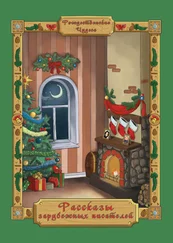
![Ганс Андерсен - Ганс Чурбан[другой перевод]](/books/95480/gans-andersen-gans-churban-drugoj-perevod-thumb.webp)
